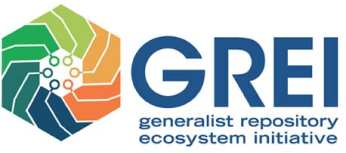Search the repository
Recently published
- Supplementary Information for "Radiometric approaches with carbon-14-labeled molecules for determining herbicide fate in plant systems"We made available the original dataset of our experiments.
- Dataset
- Incidence Trends of Melanoma In Situ Rising Among Racial/Ethnic Minorities in the United StatesSupplemental methods and data for JAAD International Publication
- Dataset
- Meteorological Data for Rochester, Seattle, and Tucson - 2021This dataset is utilized to conduct a comparative analysis of various deep learning methods and techniques for global horizontal irradiance forecasting in three cities with different climates in the US. The cities are Rochester, Seattle, and Tucson. The data is for the year 2021.
- Dataset
- BCSD-2024The proposed BCSD-2024 dataset comprises 10 patients of mammography. The left and right breast are manually marked with the assistance of trained radiologists. The affected region is marked manually, and a binary mask is created for each slice. The dataset's performance is assessed using the proposed spatial attention mechanism (SAM) for breast lesion segmentation. The SAM model, trained from scratch with the chosen hyperparameters, achieves an intersection over union (IoU) of 0.75.
- Dataset
- Long non-coding RNA CYTOR promotes the progression of melanoma via the miR-485-5p/GPI axisAs a researcher specializing in cancer biology, with a focus on non-coding RNAs in tumor progression, I have conducted a comprehensive study on the role of long non-coding RNA (lncRNA) CYTOR in melanoma. This study investigates the role of the lncRNA CYTOR in melanoma, a malignancy with rising global incidence and a poor prognosis in advanced stages. Our findings indicate that CYTOR is significantly upregulated in melanoma tissues and cell lines, where it promotes cell proliferation, migration, and invasion. Mechanistic studies demonstrated that CYTOR functions as a competitive endogenous RNA (ceRNA) for miR-485-5p, regulating the expression of glucose-6-phosphate isomerase (GPI), a critical factor in melanoma progression. These results suggest that CYTOR acts as an oncogene in melanoma and represents a promising therapeutic target.
- Dataset
- Ichimoku cloud extended signalsThe Ichimoku Cloud comprises a set of technical indicators designed to illustrate support and resistance levels, along with trend direction and market momentum. This is actually can be achieved by calculating various averages. It utilizes these calculations to create a "cloud" that aims to predict potential future support or resistance levels for the price. Then, the cloud displays them on a chart. Ichimoku cloud's basic signals including the Conversion Line, Base Line, Leading Span A, Leading Span B, and the Lagging Span, provides an insightful depiction of market trends, as well as support and resistance areas and potential turning points. We created our own dataset found on novel perspective of Ichimoku signals with proposing fifty novel features (extended signals) extracted of these two categories. In addition, the dataset includes two outputs (predictions) named "next day candlestick price" and "next day candlestick color" for regression and classification problems, respectively. It aims to allow machine learning models to explore complex patterns by extracting new extended signals, and adapting effectively to Bitcoin (BTC) price fluctuations that can lead to a model with higher accuracy. In the end, it is worthy to mention that the dataset includes Bitcoin daily information from 1/1/2012 to 8/6/2022.
- Dataset
- Pharmacological evaluation of ZLQ-3-1 in Sprague Dawley Rats using cylinder taskPharmacological evaluation of ZLQ-3-1 in Sprague Dawley Rats using cylinder task.
- Dataset
- Seasonal dynamics of hydrogen isotope fractionation in mangrove Aegiceras corniculatum lipidsThis dataset includes the concentrations of n-alkanes and n-fatty acids, as well as the hydrogen and oxygen isotope compositions from various water sources in the mangrove species Aegiceras corniculatum. These water sources include surface water (SW), pore water (PW), xylem water (XW), and leaf water (LW). The dataset also highlights fractionation occurring at key physiological stages: infiltration between surface and pore water (αPW-SW), water uptake from pore water to xylem (αXW-PW), transpiration between leaf and xylem water (αLW-XW), and biosynthesis between mangrove lipids (n-fatty acids and n-alkanes) and leaf water (αLipid-LW). Additionally, it shows the net fractionation between mangrove lipids and pore water (αLipid-PW).
- Dataset
- XRD data for High-pressure melting experiments of Fe3C and a thermodynamic model of Fe-C liquids for the Earth’s coreIn-situ XRD and temperature data for High-pressure melting experiments of Fe3C and a thermodynamic model of Fe-C liquids for the Earth’s core. XRD data and temperature data files are available.
- Dataset
- Combining visual intelligence and social-physical urban features facilitates fine-scale seasonality characterization of urban thermal environmentsOriginal data and code for "Combining visual intelligence and social-physical urban features facilitates fine-scale seasonality characterization of urban thermal environments"
- Dataset

The Generalist Repository Ecosystem Initiative
Elsevier's Mendeley Data repository is a participating member of the National Institutes of Health (NIH) Office of Data Science Strategy (ODSS) GREI project. The GREI includes seven established generalist repositories funded by the NIH to work together to establish consistent metadata, develop use cases for data sharing, train and educate researchers on FAIR data and the importance of data sharing, and more.
Find out moreWhy use Mendeley Data?
The Mendeley Data communal data repository is powered by Digital Commons Data.
Digital Commons Data provides everything that your institution will need to launch and maintain a successful Research Data Management program at scale.
Find out moreData Monitor provides visibility on an institution's entire research data output by harvesting research data from 2000+ generalist and domain-specific repositories, including everything in Mendeley Data.
Find out more